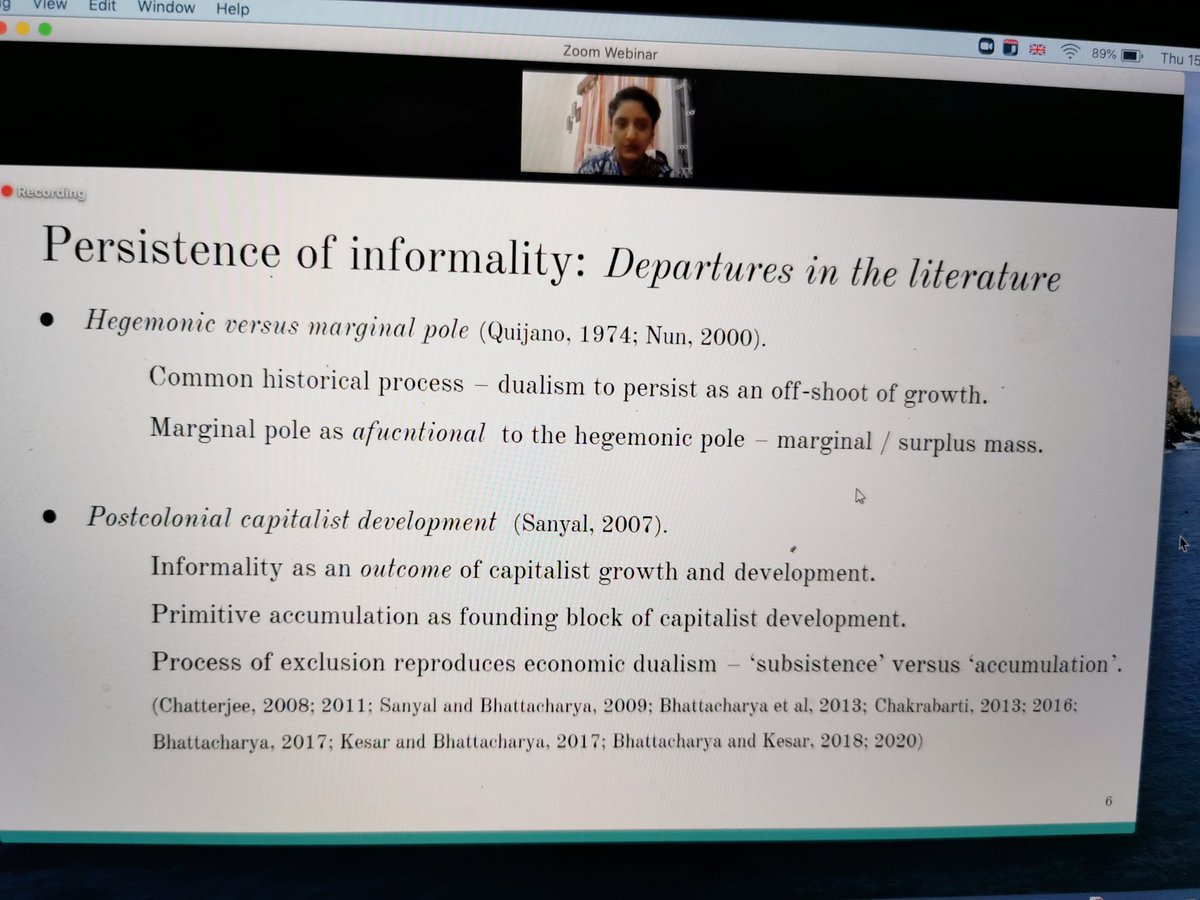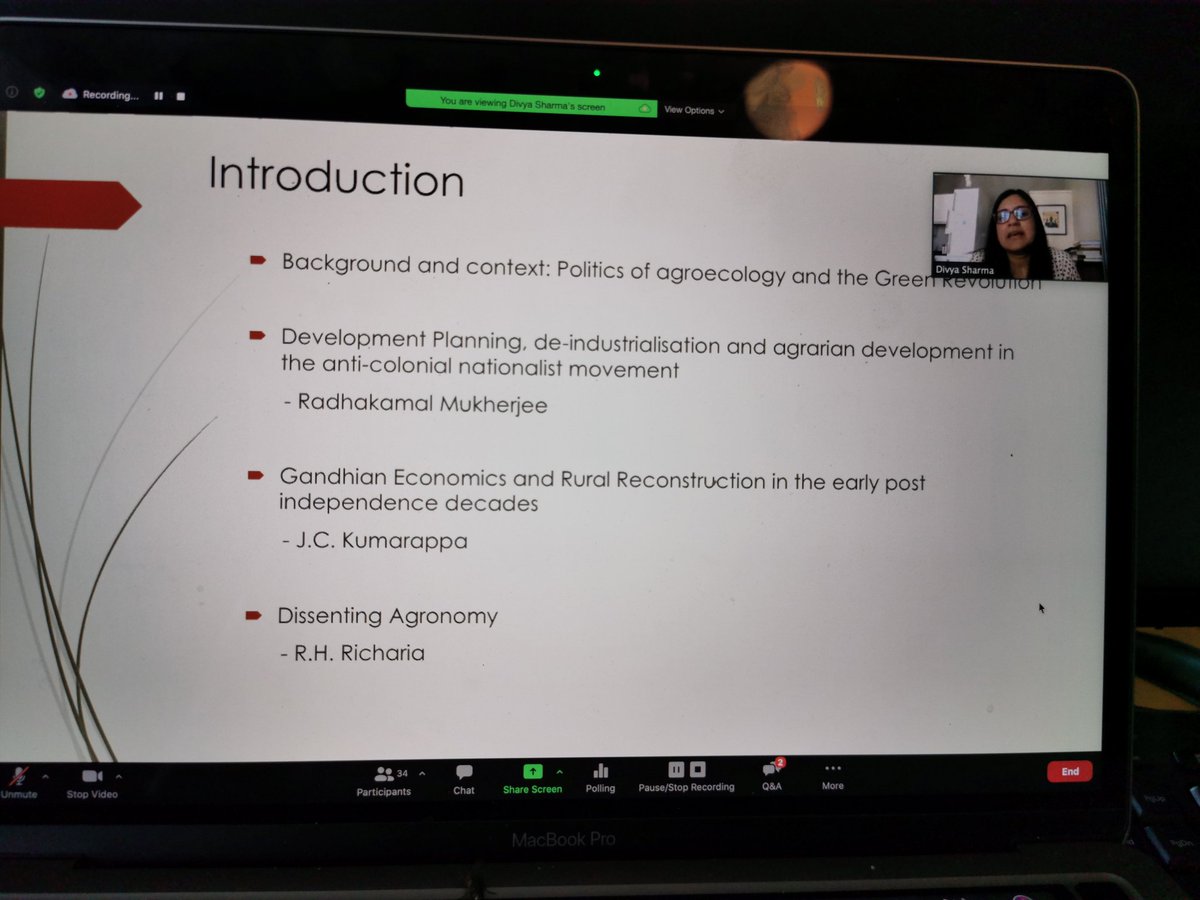#AHE2020 starting in one hour!!
Cristina Fróes de Borja Reis (et al.): The economic development of Latin America and its main problems: A Feminist Perspective
@retepelyod: Economics after Slavery
@SurbhiKesar: Economic dualism, precarity, and exclusion
@hetecon
Cristina Fróes de Borja Reis (et al.): The economic development of Latin America and its main problems: A Feminist Perspective
@retepelyod: Economics after Slavery
@SurbhiKesar: Economic dualism, precarity, and exclusion
@hetecon
https://twitter.com/ingridharvold/status/1287768589819420673
Reis' paper rereads Prebisch's manifesto to break w/its economicism & eurocentrism. It denounces how racial & gender inequalities are at the root of the world system, mirroring the harmful relationship btwn patriarchy, racism & capitalism, which is more perverse in the periphery.
Kesar's (@SurbhiKesar) paper explores the process of reproduction of economic dualism in India with capitalist development. She identifies a relatively ‘stable,’ homogeneous core existing alongside an ‘unstable,’ heterogeneous (dual) periphery.
Alex Arntsen (@alexarntsen) of @hetecon opening the webinar right now!
Join here york-ac-uk.zoom.us/webinar/regist…
Join here york-ac-uk.zoom.us/webinar/regist…
Important presentation to be following for people interested in dependency theory & structuralism🔥 #ahe2020 

Next up, super interesting work by @SurbhiKesar mapping employment transitions between sectors in India over time. She observes a continuous reproduction of non-capitalist sectors. #ahe2020 

Final speaker is @retepelyod, who asks the question: what does slavery imply about the character of economics? He draws parallels to @Claudia_Sahm's recent blog post on Economics as a disgrace. 

A very exciting panel on Anti-Colonial and Post-Colonial Development. Here @maxajl presenting the logic behind the panel itself. #ahe2020 

@maxajl presents dependency theories as explanations of mechanisms for making underdevelopment, including drain, disarticulation, colonialism, technological & financial dependency, & global wage suppression. These will be explored in different regions during this panel. #ahe2020 

Next up, Ibrahim Shikaki promises to present more of an application of dependency theory to understand the Palestinian economy. #ahe2020 

Now we have Divya Sharma presenting on contemporary agroecology movements and their critics of the green revolution model of agricultural development in India. Really interesting presentation of critical accounts #ahe2020 

• • •
Missing some Tweet in this thread? You can try to
force a refresh







